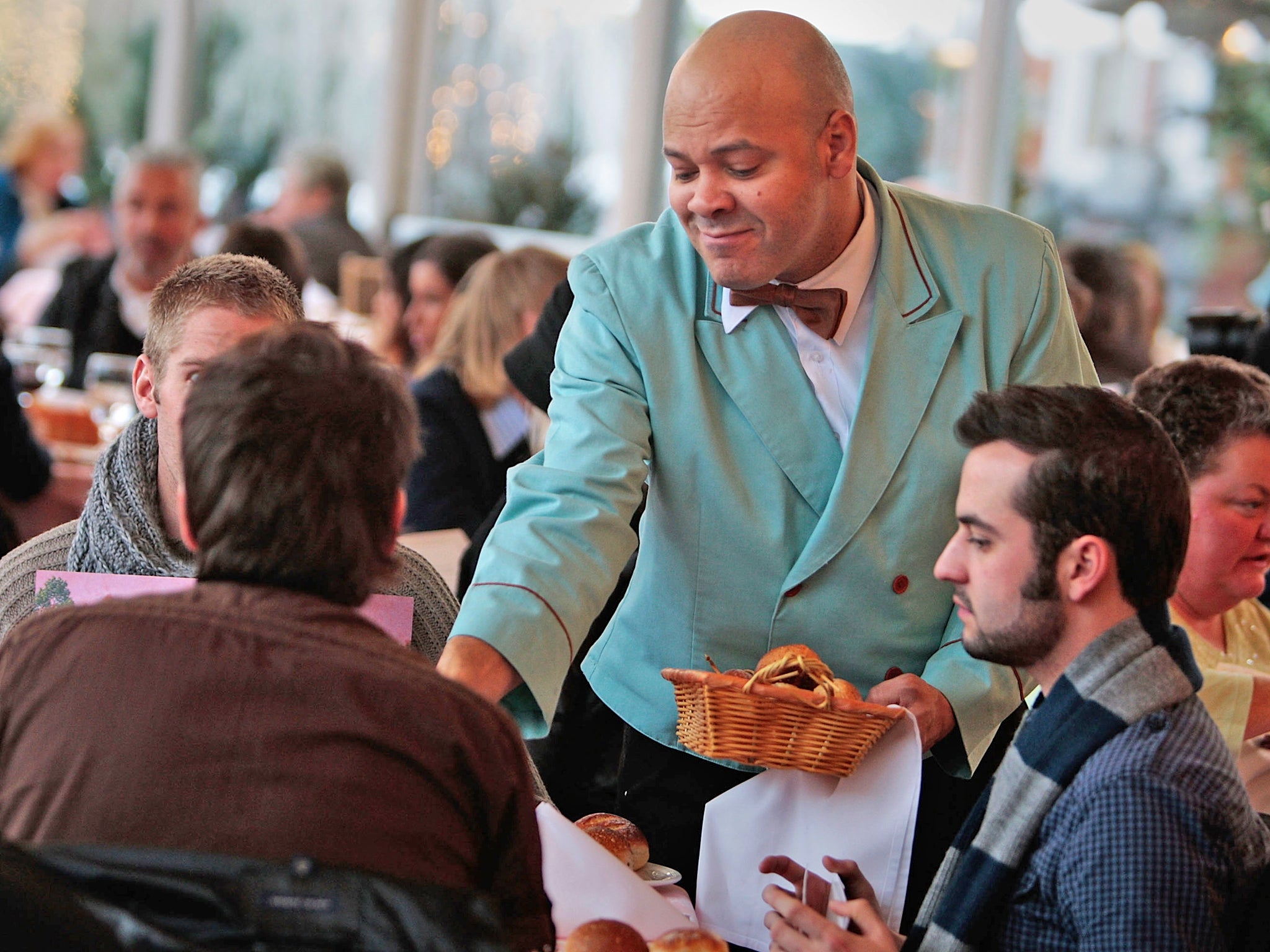Waiters need a different type of change, New York food critic says in anti-tipping call
Peter Wells of the New York Times called the practice 'irrational, outdated, ineffective, confusing, prone to abuse and sometimes discriminatory'

It is a custom that is as natural to American diners as using cutlery, but have they finally had their fill of tipping?
“Irrational, outdated, ineffective, confusing, prone to abuse and sometimes discriminatory”: that is how a leading New York restaurant critic has described the custom in a call to abandon it.
Across the US, instead of imposing a mandatory service charge, restaurants give their customers the option of rewarding the wait staff as they see fit.
Proponents argue that the prospect of a generous tip gives workers an incentive to keep diners happy. But others say the practice only allows owners to keep a lid on wages. Moreover, as tipping has become entrenched, customers often leave a certain amount whether or not they are particularly pleased with service.
In a significant intervention, the New York Times restaurant critic, Peter Wells, has come out against the practice, saying: “It’s time for all of us who go out to eat to think twice about our habits.”
Citing restaurants that are doing away with tipping, and referencing lawsuits where workers have taken restaurants to court, he said: “Tipping doesn’t work, and it doesn’t feel very good any more, either.”
Mr Wells’s piece comes weeks after Jay Porter, a Californian restauranteur, wrote a piece for the Quartz website recounting what happened when he eliminated tipping at his eatery. “Both our business and our employees made more money,” he said, pointing out that servers often learn to profile guests, which creates “negative experiences for the many restaurant customers who are women, ethnic minorities, elderly or from foreign countries”.
In another example where tipping fails, he said that on the “occasions when a server is punished for poor service by a customer withholding a standard tip, the server can keep that information to himself... that message never makes it to a manager, and the problem is never addressed”.
Join our commenting forum
Join thought-provoking conversations, follow other Independent readers and see their replies
Comments
Bookmark popover
Removed from bookmarks